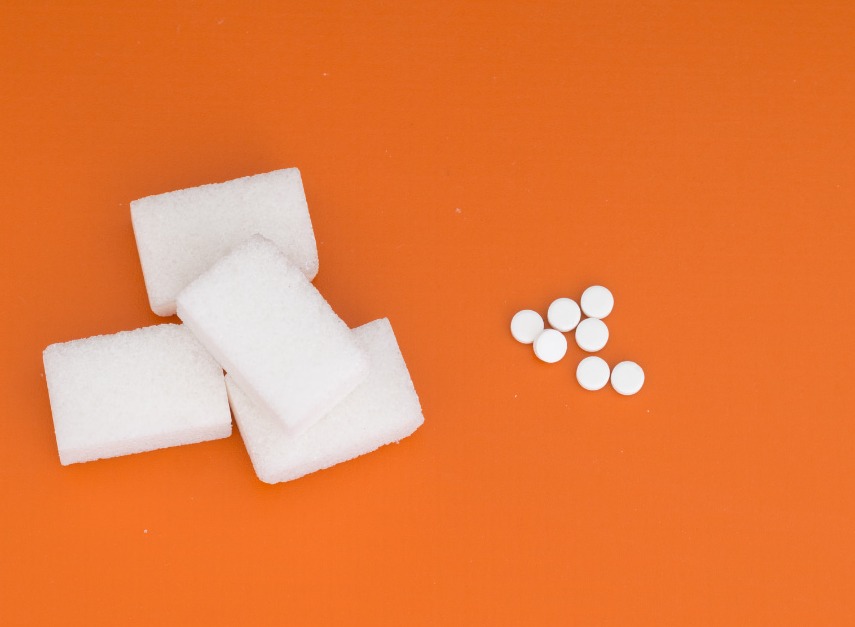- Home
- Share
- Forum
- General forums
- Good to know
- 8 Ways to Relieve Tooth Sensitivity
8 Ways to Relieve Tooth Sensitivity
- 100 views
- 0 support
- 4 comments
All comments

Unregistered member
Thank you for sharing very informative and useful information. My Dentist has prescribed Fluoride 5000 mm tooth paste for my very sensitive teeth. You can only get it on Prescription.
nineteen_gale

BAZWHEAT
Good advisor
![]()
BAZWHEAT
Last activity on 16/04/2025 at 11:49
Joined in 2015
118 comments posted | 33 in the Good to know group
23 of their responses were helpful to members
Rewards
-
Good Advisor
-
Contributor
-
Committed
-
Explorer
-
Evaluator
-
Friend
Oil of cloves often works well.
See the signature
bazwheat

Unregistered member
[Moderated content]

Unregistered member
[Moderated content]
Give your opinion
Survey
Articles to discover...
Subscribe
You wish to be notified of new comments
Your subscription has been taken into account








Margarita_k
Community managerGood advisor
Margarita_k
Community manager
Last activity on 07/10/2020 at 11:39
Joined in 2016
1,195 comments posted | 118 in the Good to know group
1 of their responses was helpful to members
Rewards
Good Advisor
Contributor
Messenger
Committed
Explorer
Evaluator
About 1 in 8 people have sensitive teeth, according to a study in the March 2013 issue of the Journal of American Dentistry. If you’ve chalked your sensitive teeth up to either bad luck or bad genetics, you might want to think again: there’s a good chance that your dental dilemmas are being triggered by improper brushing or too many sugary drinks.
First, some background: our teeth are coated with an outer, protective layer of enamel, then another, inner layer of dentin. When the enamel on our teeth wears down, we’re especially susceptible to very hot, cold, sweet, and acidic foods and drinks, which work their way through the tiny tubules in the dentin and irritate the underlying nerves. When this happens, you might feel a shocking sensation that can radiate through the tooth for moments to hours.
The good news: there are steps you can take to ease and prevent tooth sensitivity. Here are eight strategies that work.
Brush Gently
Vigorous brushing won’t make your teeth any cleaner, but it can increase your risk for tooth sensitivity. That’s because too-tough brushing can cause your gums to pull away from your teeth, exposing the nerve and setting you up for tooth pain.
Use a soft-bristled brush. Using short strokes, brush your teeth twice a day in a gentle up-and-down motion — not from side-to-side, thinking of it like massaging your teeth and gums versus a hard scrubbing. As long as you're doing it twice a day for two minutes, it will be effective.
Use a Desensitizing Toothpaste
Over-the-counter desensitizing toothpastes contain a compound that helps block the transmission of sensation from the tooth to the nerve. Use it twice daily; you should notice less sensitivity within a few weeks. For very tender areas, try rubbing a bit of desensitizing toothpaste directly on the tooth, suggests the British Dental Health Foundation (BDHF).
Rinse With a Fluoride Mouthwash
The fluoride in over-the-counter fluoride mouthwashes can strengthen your teeth’s enamel layer, helping to [protect against] sensitivity. (Bonus: Fluoride also can protect against tooth decay and cavities, which can also cause sensitive teeth) Just remember to rinse daily with the mouthwash after brushing your teeth.
Avoid Acidic Drinks
Highly acidic foods and drinks wear away your teeth’s enamel, leaving you susceptible to tooth sensitivity and tooth decay. Plus, they can also cause the gum line to recede, which exposes the nerves. Carbonated sodas, citrus fruit-based juices, and citrus fruits are all acidic. Instead of eating citrus fruits by themselves, try adding them to a meal: the other foods serve as a buffer, which helps lower the pH levels in your mouth. And be sure to wait at least 30 minutes after eating citrus fruits to brush your teeth. The acid weakens tooth enamel, and brushing too soon may damage the enamel.
Skip the Tooth Bleaching
Both at-home whitening kits and in-office teeth whitening procedures can cause some temporary sensitivity, so if you have sensitive teeth and want to brighten your pearly whites, be sure to let your dentist know about your condition. If you have sensitive teeth, they may not recommend whitening for you.
Bite Down on a Mouth Guard
If you grind your teeth — a condition called bruxism — you can wear down the enamel, which could trigger sensitivity. Since people commonly grind their teeth at night, talk to your dentist about being fitted for a mouth guard that you can wear while you sleep. Another suggestion: Because tooth grinding is often a sign of stress, you may also need to incorporate more de-stressing lifestyle changes into your day (think: exercising, meditation, and more).
Consider In-Office Treatments
If you have severely sensitive teeth, you might want to consider an in-office dental treatment. Gel fluoride treatments (available in higher concentrations than you’d find in over-the-counter products), crowns, inlays, or bonding can all help cover sensitive areas on your teeth. For severe cases, you can also have a gum graft (a procedure that removes a section of your gum from one area of your mouth and moves it to the area where your gums have receded) or, if the pain can’t be managed, a root canal to remove the nerve. If everything else doesn't help, these are kind of a last resort.
Visit Your Dentist
If your teeth are sensitive and nothing seems to be working, visit your dentist. If your teeth are bothered in cold weather, the question is what's causing it to be sensitive to the cold. Don't just try to cover it up. Sensitive teeth can be a warning sign of a more serious dental health problem such as a fractured tooth, worn fillings, an exposed root, or gum disease.
Source: everydayhealth.com